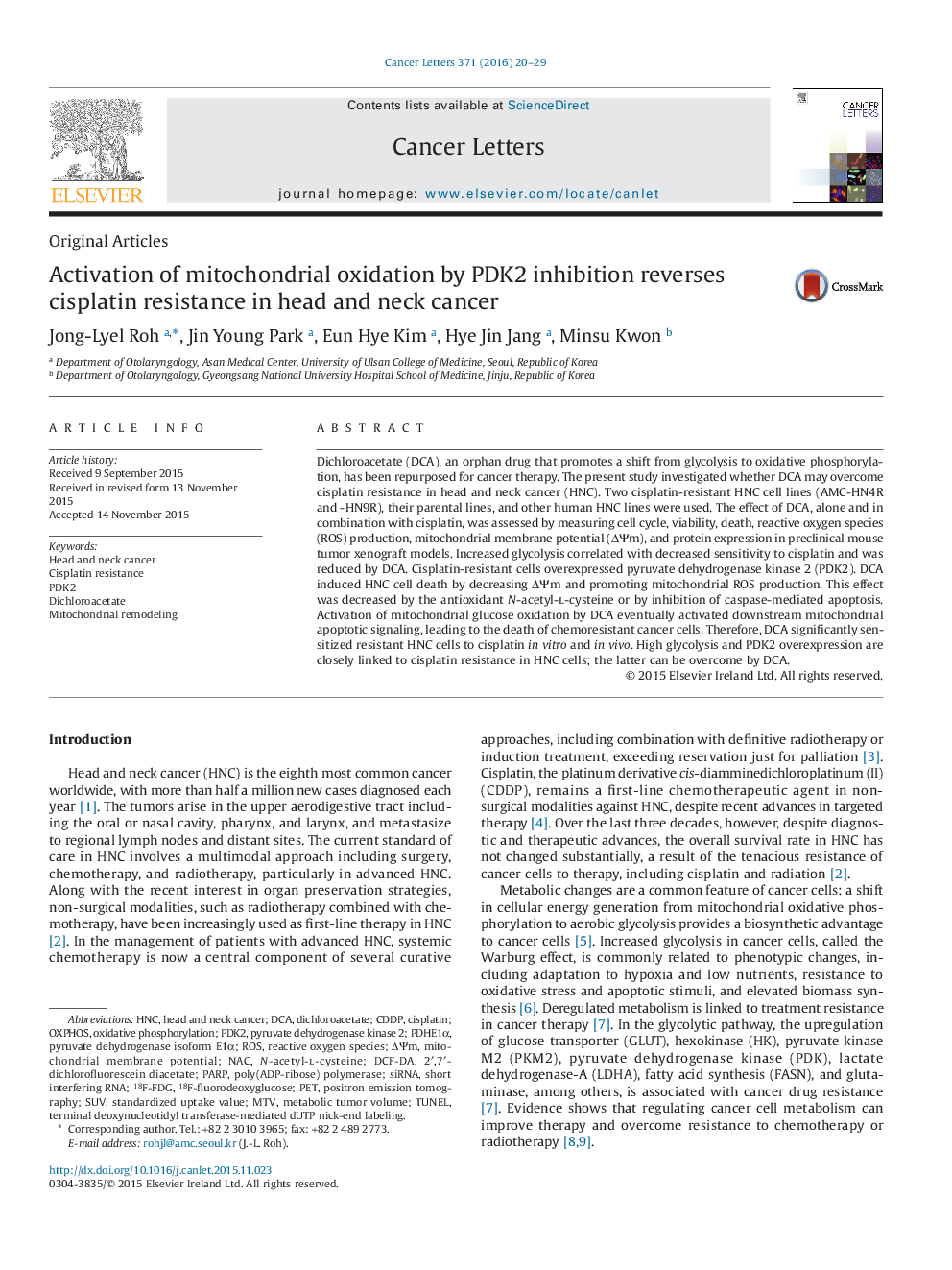| Article ID | Journal | Published Year | Pages | File Type |
|---|---|---|---|---|
| 10901507 | Cancer Letters | 2016 | 10 Pages |
Abstract
Dichloroacetate (DCA), an orphan drug that promotes a shift from glycolysis to oxidative phosphorylation, has been repurposed for cancer therapy. The present study investigated whether DCA may overcome cisplatin resistance in head and neck cancer (HNC). Two cisplatin-resistant HNC cell lines (AMC-HN4R and -HN9R), their parental lines, and other human HNC lines were used. The effect of DCA, alone and in combination with cisplatin, was assessed by measuring cell cycle, viability, death, reactive oxygen species (ROS) production, mitochondrial membrane potential (ÎΨm), and protein expression in preclinical mouse tumor xenograft models. Increased glycolysis correlated with decreased sensitivity to cisplatin and was reduced by DCA. Cisplatin-resistant cells overexpressed pyruvate dehydrogenase kinase 2 (PDK2). DCA induced HNC cell death by decreasing ÎΨm and promoting mitochondrial ROS production. This effect was decreased by the antioxidant N-acetyl-l-cysteine or by inhibition of caspase-mediated apoptosis. Activation of mitochondrial glucose oxidation by DCA eventually activated downstream mitochondrial apoptotic signaling, leading to the death of chemoresistant cancer cells. Therefore, DCA significantly sensitized resistant HNC cells to cisplatin in vitro and in vivo. High glycolysis and PDK2 overexpression are closely linked to cisplatin resistance in HNC cells; the latter can be overcome by DCA.
Keywords
DCAPDK2MTVHNCCDDPPARPDCF-DANACOXPHOS18F-fluorodeoxyglucose18F-FDGΔΨmN-acetyl-l-cysteine2′,7′-dichlorofluorescein diacetateshort interfering RNAROSsiRNAPositron emission tomographyTUNELMetabolic tumor volumeDichloroacetateHead and neck cancercisplatinOxidative phosphorylationterminal deoxynucleotidyl transferase-mediated dUTP nick-end labelingSUVCisplatin resistancestandardized uptake valuePETMitochondrial membrane potentialPoly(ADP-ribose) polymeraseReactive oxygen species
Related Topics
Life Sciences
Biochemistry, Genetics and Molecular Biology
Cancer Research
Authors
Jong-Lyel Roh, Jin Young Park, Eun Hye Kim, Hye Jin Jang, Minsu Kwon,
